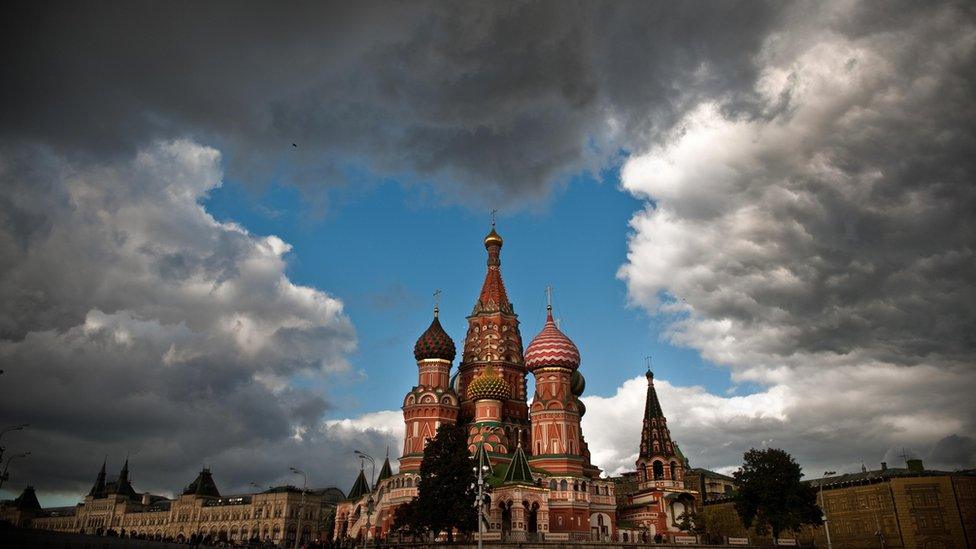Trump-Russia row: Putin offers to release meeting record
- Published
'No politician in history has been treated worse'
Russian President Vladimir Putin has waded into the growing row surrounding US President Donald Trump and dealings with Russia.
US media say Mr Trump passed on classified information to Russian officials last week, but Mr Putin says this is not the case.
He said he would release a record of the meeting to Congress if requested.
The news comes amid reports Mr Trump tried to influence an investigation into his team's links with Russia.
US media have quoted a memo by former FBI director James Comey that reportedly says Mr Trump asked him to drop an inquiry into links between his ex-National Security Adviser Michael Flynn and Moscow.
The fallout from both issues continues to consume Washington, with moves by Democrats to set up an independent commission is starting to gather momentum.
As for Mr Trump, he told US Coast Guard Academy graduates in Connecticut: "No politician in history has been treated worse or more unfairly."
Issue one: The Russian meeting
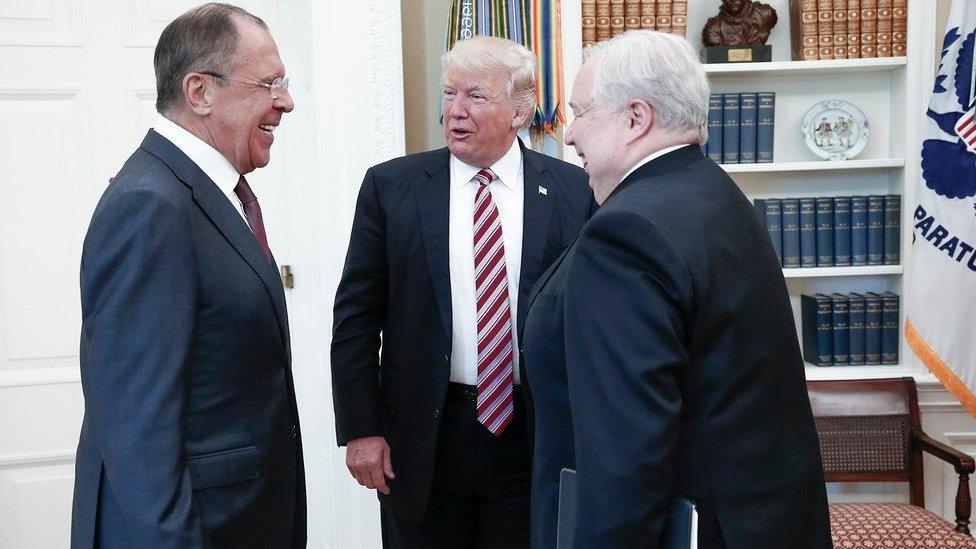
Mr Trump met Sergei Lavrov (L) and Ambassador Kislyak (R) last Wednesday
Mr Trump met Russian Foreign Minister Sergei Lavrov and Russian Ambassador Sergei Kislyak at the White House last Wednesday.
The meeting came amid an ongoing FBI inquiry and congressional hearings into possible Russian influence in the 2016 US election.
It also came a day after Mr Trump dismissed Mr Comey from his post.
On Monday, the Washington Post, external, followed by a number of other US outlets, said Mr Trump had given the Russian officials information relating to the Islamic State group (IS) that could have endangered the source of the information.
The information was reportedly deemed so sensitive it had not been shared with key US partners, let alone Russia.
Mr Trump later defended his right to share the information, and his national security adviser HR McMaster said the president's actions were "wholly appropriate".
On Wednesday, Mr Putin joked that the meeting did not unfold as had been portrayed.
"I spoke to him [Mr Lavrov] today," he said. "I'll be forced to issue him with a reprimand because he did not share these secrets with us."
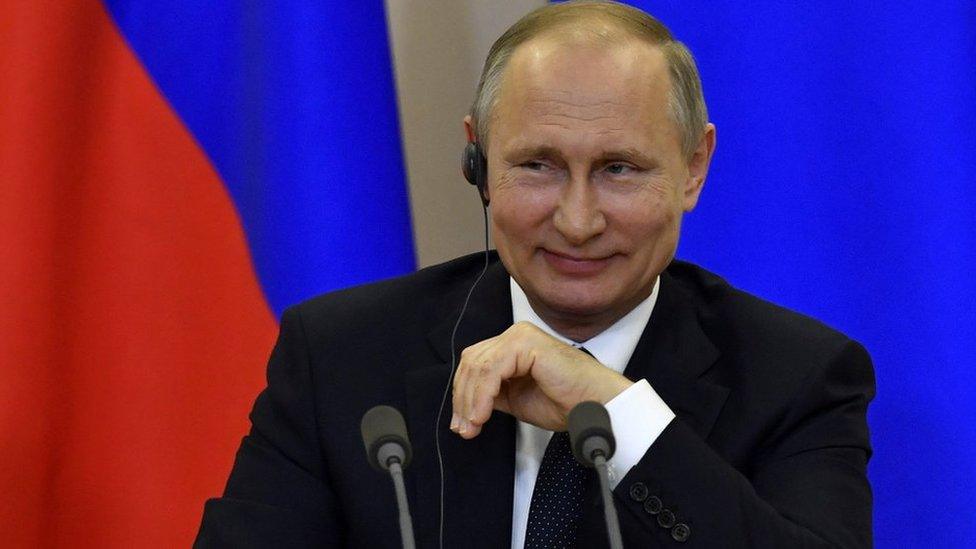
Mr Putin was speaking at a news conference in Sochi
Issue two: The Comey memo reports
While in charge at the FBI, Mr Comey was heading an investigation into possible Russian influence on the US election.
The Russia story has already claimed one victim - Mr Trump's first national security adviser Michael Flynn, who was fired after misleading the government over his meetings with Mr Kislyak.
Trump's love-hate relationship with Comey over a tumultuous year
The New York Times reported on Tuesday, external that Mr Comey had written a memo following a meeting with the president on 14 February, saying that Mr Trump had asked him to close an investigation into Mr Flynn's actions.
He reportedly shared this memo with top FBI associates.
"I hope you can see your way clear to letting this go, to letting Flynn go," the president told Mr Comey, according to accounts of the memo. "He is a good guy."
Mr Comey did not respond to his request, according to this account, but replied: "I agree he is a good guy."
The FBI chief was later fired by Mr Trump. The official reason was over his handling of the FBI investigation into Hillary Clinton's use of a private email server while at the state department.
But Mr Trump said in an interview last week that "this Russian thing" was on his mind as he made the decision.
The White House denied the allegation that Mr Trump had tried to influence Mr Comey.
"The president has never asked Mr Comey or anyone else to end any investigation, including any investigation involving General Flynn," it said.
A White House official also pointed out that acting FBI director Andrew McCabe had testified last week that there had been "no effort to impede our investigation to date".
Trump supporters stick with him despite scandal
The fallout
The Senate's Intelligence Committee said it had asked Mr Comey to appear before the panel to testify, and had asked the FBI for all relevant documents, including the memo.
House Oversight Committee chair Jason Chaffetz, a senior Republican, said the memo and related documents "raise questions as to whether the president attempted to influence or impede the FBI's investigation".
Struggling to keep up? Here's a reminder of what happened in a wild week
On Wednesday, the Republican Speaker of the House, Paul Ryan, said it was crucial to let investigations run their course before rushing to judgment.
But Democratic members of the House of Representatives said they would try and force a vote to create an independent commission into the Russia ties. Two Republicans backed the move, they said.
Wall Street reacted nervously on Wednesday, with the Dow Jones index suffering its biggest one-day drop since September.
Has Trump obstructed justice?
Adam Schiff, the highest-ranked Democrat on the House Intelligence Committee, said this intervention by Mr Trump, if confirmed, amounted to "interference or obstruction of the investigation".
The key legal statute is 18 US Code Section 1512, which contains a broad definition allowing charges to be brought against someone who "obstructs, influences, or impedes any official proceeding, or attempts to do so".
It has been pointed out that Mr Trump did have the legal authority to fire Mr Comey, but there is a legal precedent for otherwise lawful acts to be considered an obstruction of justice if done with corrupt intentions, the New York Times says, external.
Trump sharing intelligence "very serious" says ex-defence chief
Legal experts have told the Washington Post, external that that is not clear in this case as intent is difficult to prove.
However, former federal prosecutor Samuel Buell told the Times: "The evidence of improper purpose has gotten much stronger since the day of Comey's firing.
"Trump has made admissions about that. And we now have evidence that he may have indicated an improper purpose previously in his communications with Comey about the Russia investigation."
- Published17 May 2017
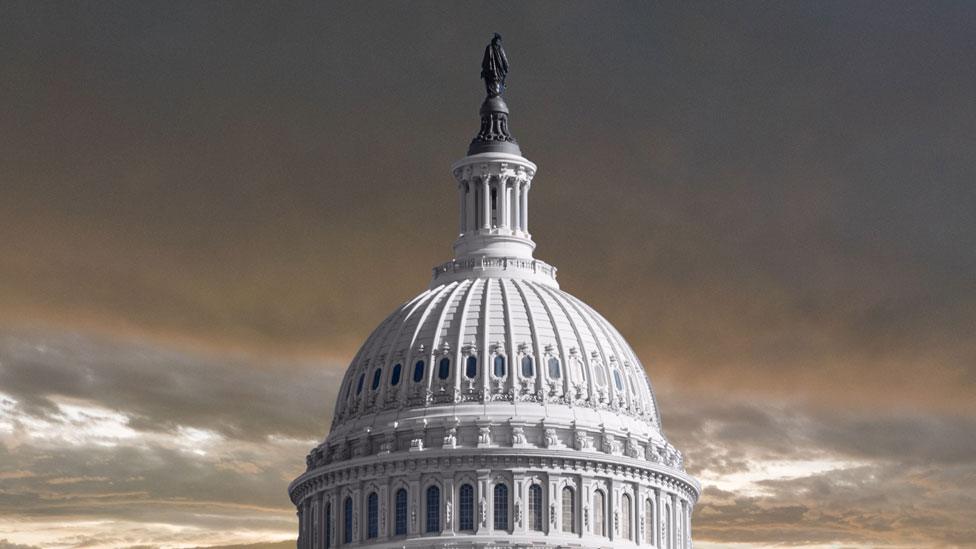
- Published17 May 2017
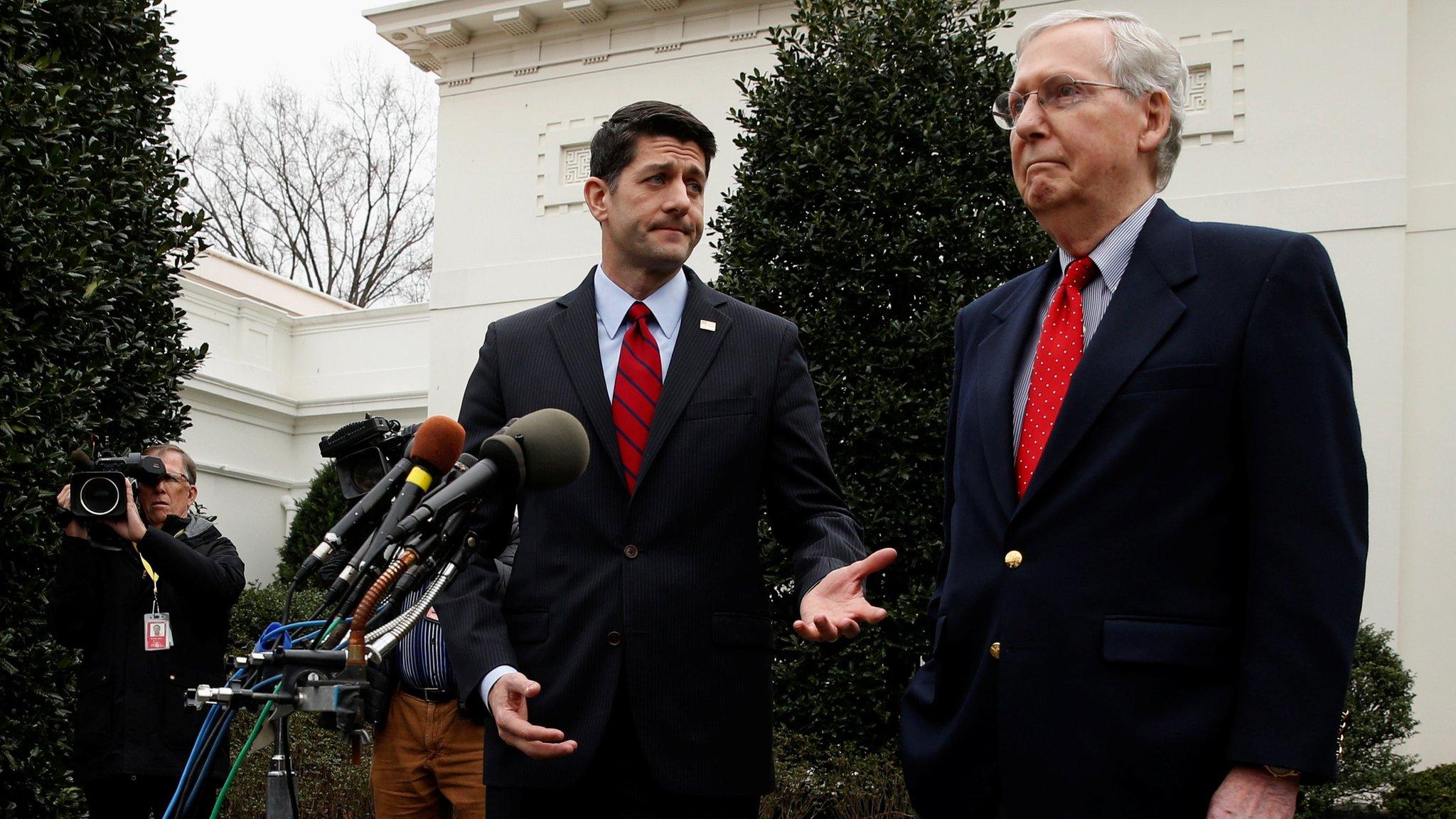
- Published19 December 2019
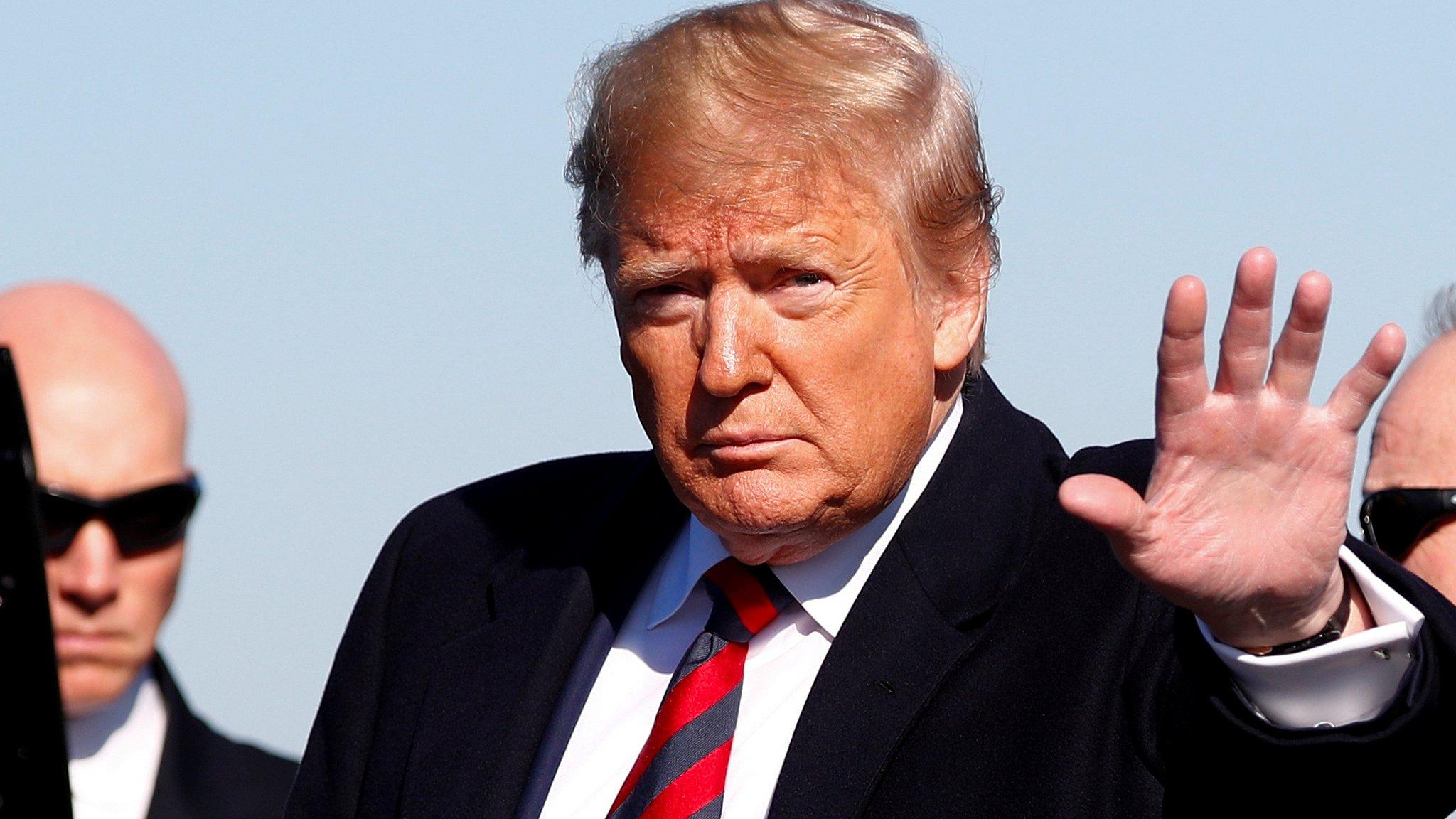
- Published16 May 2017
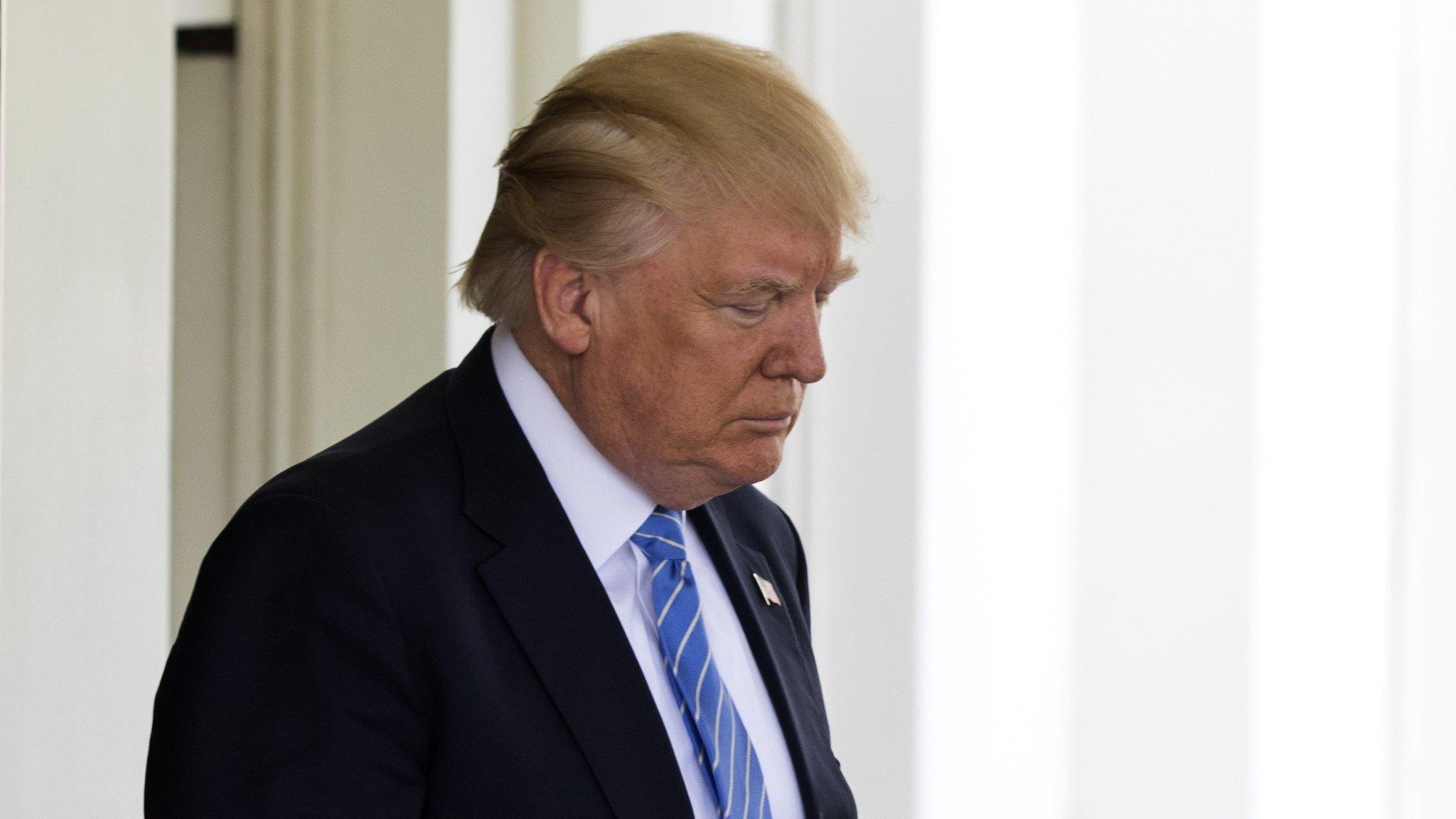
- Published17 May 2017
- Published17 May 2017
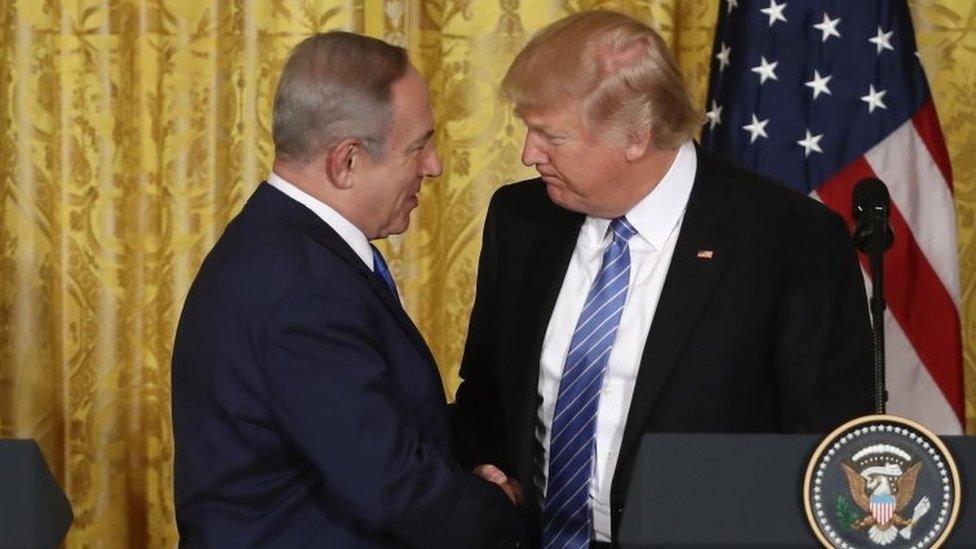
- Published14 September 2018
